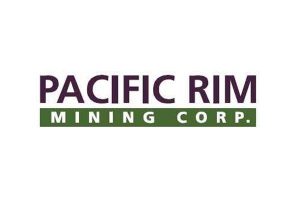Defending Natural Resources, Politics
The minister of Health regarding the water crisis of January
(ARTÍCULO DE CARMEN ESCOBAR PARA GATOENCERRADO)
The Minister of Health, Ana Orellana Bendeck, was questioned by the Legislative Assembly, on Saturday, February 15th, to explain why the water distributed by the National Administration of Aqueducts and Sewers (ANDA) in San Salvador, arrived with bad taste, pestilent and in some cases even with sediment during January. The deputies resorted to this questioning, after the minister was absent twice when summoned by the deputies of the Environment and Health commissions. During the interrogation, which lasted two days, the deputies asked her if the Ministry of Health did biochemical tests on the water to determine the quality and what it contained.
The official responded that the ministry did not do the biochemical tests and then justified it, with ways of a teacher who illustrates a topic to her students.
“In principle, biochemical studies are not carried out in water, they are carried out on living beings. Therefore, we do not do biochemical studies on water. Biochemical studies are done on living beings, the blood chemistry of living things is studied, for example, like us. There we have blood chemistry of carbohydrates, proteins, cholesterol, triglycerides and glycemia. This test is not performed on water, therefore no biochemical studies were done. The plant is responsible for monitoring physical-chemical, microbiological and trace metals”, she said.
Her response unleashed a controversy in social media among those who say she showed the ignorance of the deputies who wrote such questions and those who say that the minister did not want to answer correctly and that she was beating around the bush.
We consulted experts on the subject and everyone agreed that the minister drifted and avoided admissions of any kind of responsibility in the water crisis. What those experts said puts the official’s statement in our Deceptive category, which is one of the six under that GatoEncerrado uses when analyzing public discourses. These are some of the explanations we decided to include in this verification. We had to leave others out, since experts said almost the same.
The hydrologist and consultant of the World Water Association (GWP), Ricardo Quiñonez Basagoitia, explained to GatoEncerrado that you can do biochemical analyzes on water focused on algae, fungi, viruses or other pathogens, which are microorganisms that can live in water. This analysis, he said, is done in raw waters, such as rivers where aquatic life exists. Water that has already gone through processes, such as those by ANDA, has been filtered, but still biochemical tests can be done to identify if microorganisms have remained.
“There is nowhere to get lost, because we understand what we are talking about, which are microorganisms that inhabit the water. She (minister) is a doctor and knows about microorganisms. So I don’t know what the reason is for not understanding or interpreting the question well. It is clear and we are aware that in the case of a biological analysis of water we are looking for fungi, algae, pathogens, protozoa, viruses, etc.”, he added.
The biologist and professor at the University of El Salvador (UES), Miguel Moreno, agreed with the hydrologist Quiñonez Basagoitia and also assured that biochemical tests can be done.
“Biochemical tests of inert substances can be done. Water can be biochemically tested. If I suspect contamination of some microorganisms, I could do them to confirm their presence. For example, here in El Salvador, in Labtox (of the UES) they carry out biochemical tests that look for cytotoxins, which are the product of the metabolism of some algae. I can do a biochemical test to a water sample to determine the presence of a protein that can be a marine toxin. What she (the minister) said is not necessarily correct”, Moreno explained.
The former Minister of Health, Eduardo Espinoza, added that the wording of the question, although not correct, could have been understood by the minister.
“They (deputies) must have said a bacteriological analysis, rather than a biochemical one. But the minister should know that. This is known by any doctor. This study examines bacteria, bacteria are living things and water contains bacteria. Inside the water there is a large number of bacteria, viruses and, in fact, bacteriological exams admit a certain level of fecal coliform as normal. It is a lie of the minister to say that she has no responsibility for water, it is in the health code”, Espinoza said.
During the questioning, Minister Orellana commented that the studies carried out by the Ministry of Health to water, distributed by ANDA, verify permanently chlorine, free residual, microbiological chemical analysis and physical-chemical analysis, as dictated by the Salvadoran Technical Regulations (RTS).
This regulation is based on guidelines for the quality of drinking water of the World Health Organization. Among other things, it proposes guidelines to guarantee the quality of water.
The former Minister of Health said that sticking to the RTS limited the ministry’s actions during the water-generated crisis.
“She (minister) says she adhered only to the RTS, which is not correct. She can do much more than she says. What RTS does is to regulate three types of exams: The bacteriological, physical-chemical and heavy metal studies. In this case, they (government officials) mention that they did the exams and nothing came of it, so they had the obligation to continue looking for a cause and, during the questioning, it became a bit clear that algae were such cause”, said Espinoza.
A microbiological evaluation of the quality of drinking water distributed by ANDA in San Bartolo, Santa Lucía and San Martín, published in 2004, is evidence that students from the University of El Salvador conducted biochemical water tests to identify species of bacteria and create a biochemical profile.



